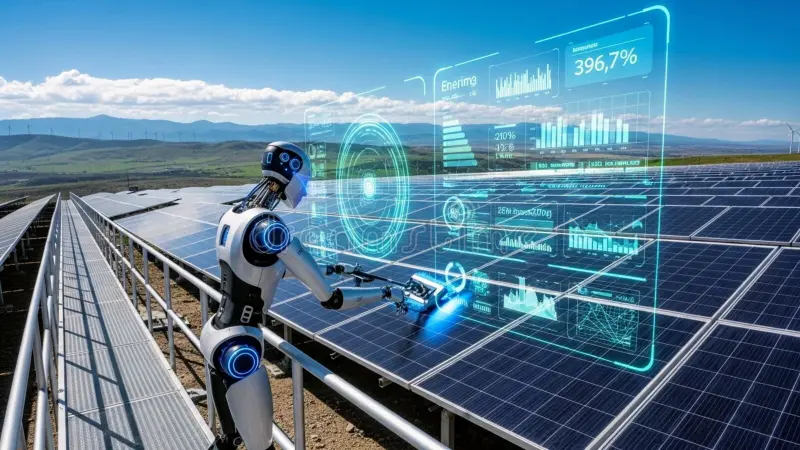India’s solar sector is evolving rapidly, and emerging technologies like Artificial Intelligence (AI) and the Internet of Things (IoT) are playing a pivotal role in driving efficiency, reliability, and scalability. As the country works toward achieving its ambitious 500 GW renewable energy target by 2030, AI and IoT are becoming indispensable in optimizing solar energy systems.
How AI Supports Solar Energy:
AI-powered analytics help forecast solar generation by studying weather patterns, sunlight intensity, and demand fluctuations. This predictive intelligence ensures better grid management and minimizes power wastage. Moreover, AI algorithms enable smart energy distribution, fault detection, and performance optimization, reducing downtime and maximizing output.
IoT in Solar Energy:
IoT-enabled devices connect solar panels, inverters, and batteries to a central system for real-time monitoring. With IoT sensors, operators can track performance metrics such as voltage, temperature, and energy yield remotely. This leads to data-driven decision-making, proactive maintenance, and cost savings for both residential and commercial solar projects.
Combined Impact on India’s Solar Growth:
Together, AI and IoT create smart solar ecosystems that enhance efficiency, lower costs, and improve energy reliability. For large-scale solar parks, they help manage grid integration, while for rooftop systems, they empower consumers with real-time insights into their energy usage.
The integration of AI and IoT in India’s solar energy sector is accelerating the country’s transition to a sustainable future. By enabling smarter operations, predictive maintenance, and efficient energy utilization, these technologies are not just supporting solar adoption but reshaping the way India generates and consumes clean power.




